Asia
Arrested, threatened, beaten: The Uzbekistan activist who won't give up
- 5 hours ago
- Asia
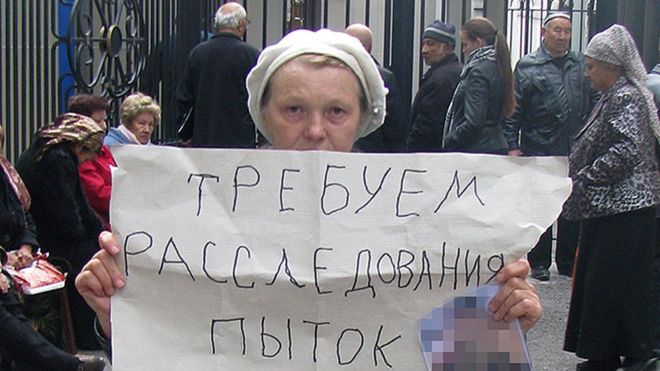
Elena Urlaeva was reportedly subjected to sexual violence by the Uzbek authorities, after years of arrests and beatings. The BBC profiles an activist renowned for her bravery.
It's early morning in a town near the Uzbek capital Tashkent and a large group of local teachers are queuing for a line of buses to take them to work.
Among them is Elena Urlaeva, Uzbekistan's veteran rights activist and thorn in the side of the authorities.
The teachers are not heading for schools and nurseries, but to nearby cotton fields, and Ms Urlaeva is trying to document the practice of forced labour in the cotton industry.
The 58-year-old who heads the unregistered Human Rights Alliance of Uzbekistan is one of the few remaining independent rights defenders in a country tightly controlled by long-term authoritarian leader Islam Karimov.
Ms Urlaeva is a regular observer of the cotton harvest, a vital cash crop, and on this morning she's chatting to teachers, trying to gather information about the mobilisation of government workers to do unpaid "voluntary" work.
What happened next is based on her own account. The events cannot be verified, but are in keeping with what has happened to her and other activists in the past.
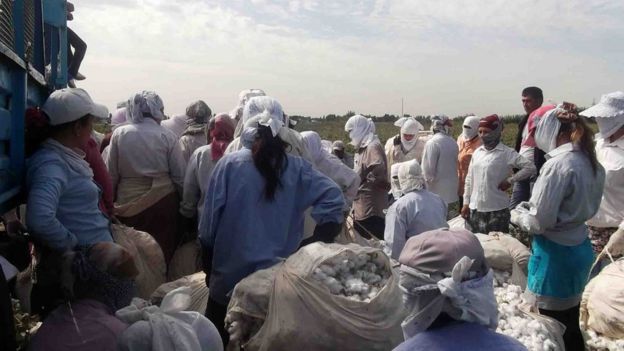
Invasive search
Ms Urlaeva says that when she started taking pictures, plain-clothed officers approached her and demanded her memory card.
It's not in Ms Urlaeva's character to comply with officials easily. So she ran for it.
She was caught and taken to the local police station where an officer accused her of destabilising the country and selling off state secrets. He hit her on the head.
Such treatment was not new to Ms Urlaeva who has endured many similar encounters and whom international rights groups have called the "bravest woman in Uzbekistan".
But what happened next was far worse.
Doctors from a rapid psychiatric unit arrived at the request of the police and sedated her with three injections, she says.
The body search that followed was described by the lobby group Human Rights Watch as a "double cavity search": Ms Urlaeva was held down by several people and the most intimate parts of her body were subjected to inspections.
When that did not produce a result she was taken for an X-ray.
The humiliation didn't stop there. Ms Urlaeva was refused permission to use the toilet and was told to go outside.
"We will film you," she says she was told. "If you complain about what happened here we will put the footage of your bare backside all over the internet."
The brutality of the treatment Ms Urlaeva says she received has shocked her supporters.
International rights groups from Amnesty International to Human Rights Watch reported her ordeal. The US and the European Union also expressed their concern.
But the report doesn't come as a surprise.
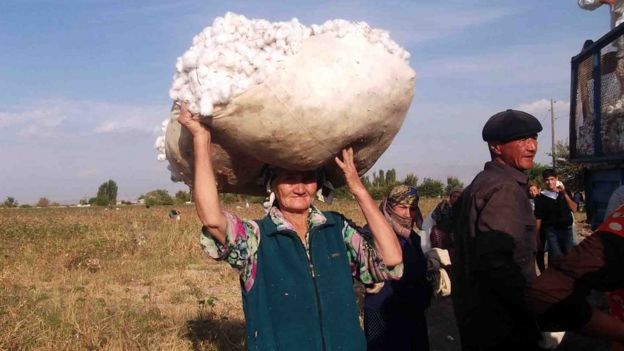
Persistence
Ms Urlaeva has probably done more than anyone to observe, document and expose Uzbekistan's state-sponsored forced labour system, which has been condemned by international human rights groups and the International Labour Organization.
"The Uzbek government uses forced labour, including child labour to harvest a crop from which only the elite profit," Andrew Stroehlein from Human Rights Watch says. "She was investigating this corrupt and abusive practice of forced labour."
Ms Urlaeva's persistent work contributed to an international campaign which ultimately led major global brands to join a boycott of Uzbek cotton.
As a result, Uzbekistan began to eliminate at least the practice of child labour in the harvest with teachers, doctors and civil servants now making up the numbers.
Elena Urlaeva's journey as a human rights activist began almost 20 years ago when she helped her brother who was caught up in a child custody case.
It was the first time she fell foul of the authorities. She was charged with hooliganism and fired from her job with the state broadcasting company.
Charges of hooliganism, detention and forced sectioning in psychiatric hospitals are well documented methods used by the authorities to silence and intimidate dissidents and activists - practices rolled over from the Soviet era.
Ms Urlaeva has suffered all of them.
She has been arrested, beaten, threatened - and was held in psychiatric institutions on many occasions amounting to many months of forced treatment and medication.
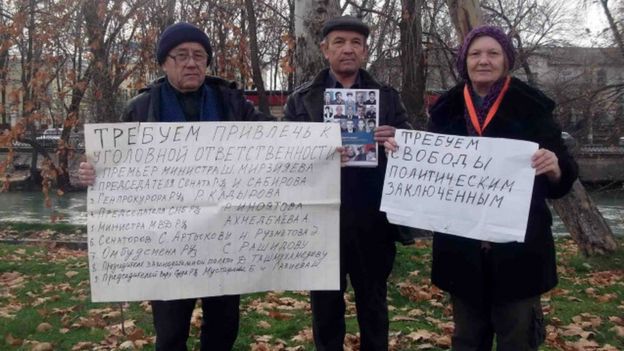
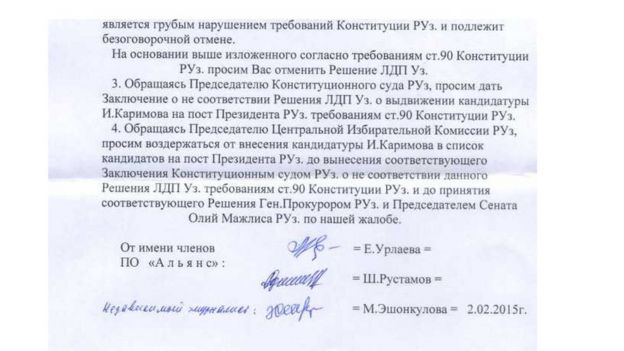
She's campaigned on numerous issues, from opposing the destruction of homes for public building projects, to highlighting corruption, torture and false imprisonment.
There seems to be almost no cause she won't pick up. This year she campaigned against the re-election of President Karimov. And on the 70th anniversary of the end of World War Two she interviewed veterans to highlight poor living conditions.
Her work, documenting abuses with photographs or first-hand interviews with relatives of victims, has been a rare source of information for human rights organisations as well as the media.
In a country where public protests are unheard of, she has held numerous mini-demonstrations - often alone, holding a self-made placard.
She's been whisked away many times - sometimes she's been stopped at her own front door.
Her family has been put under pressure too. Ms Urlaeva's 11-year-old adopted son has suffered bullying at school and has been beaten up near his home by teenagers set up to ambush him.
After every attack Ms Urlaeva has come back - although not always stronger. Her health has suffered, but not it seems her determination.
In the latest correspondence following her ordeal Elena Urlaeva wrote that she was undergoing medical treatment for her injuries and looking for a lawyer to "take on her abusers".
"When I finish with the treatment I will continue my fight against modern day slavery," she wrote.
In recent weeks she has since been arrested once more but is currently out of custody.
Asia
Reveller dies from inferno injuries
- 29 June 2015
- Asia
China-led global bank takes shape
- 29 June 2015
- Asia








No comments:
Post a Comment
Please leave a comment-- or suggestions, particularly of topics and places you'd like to see covered